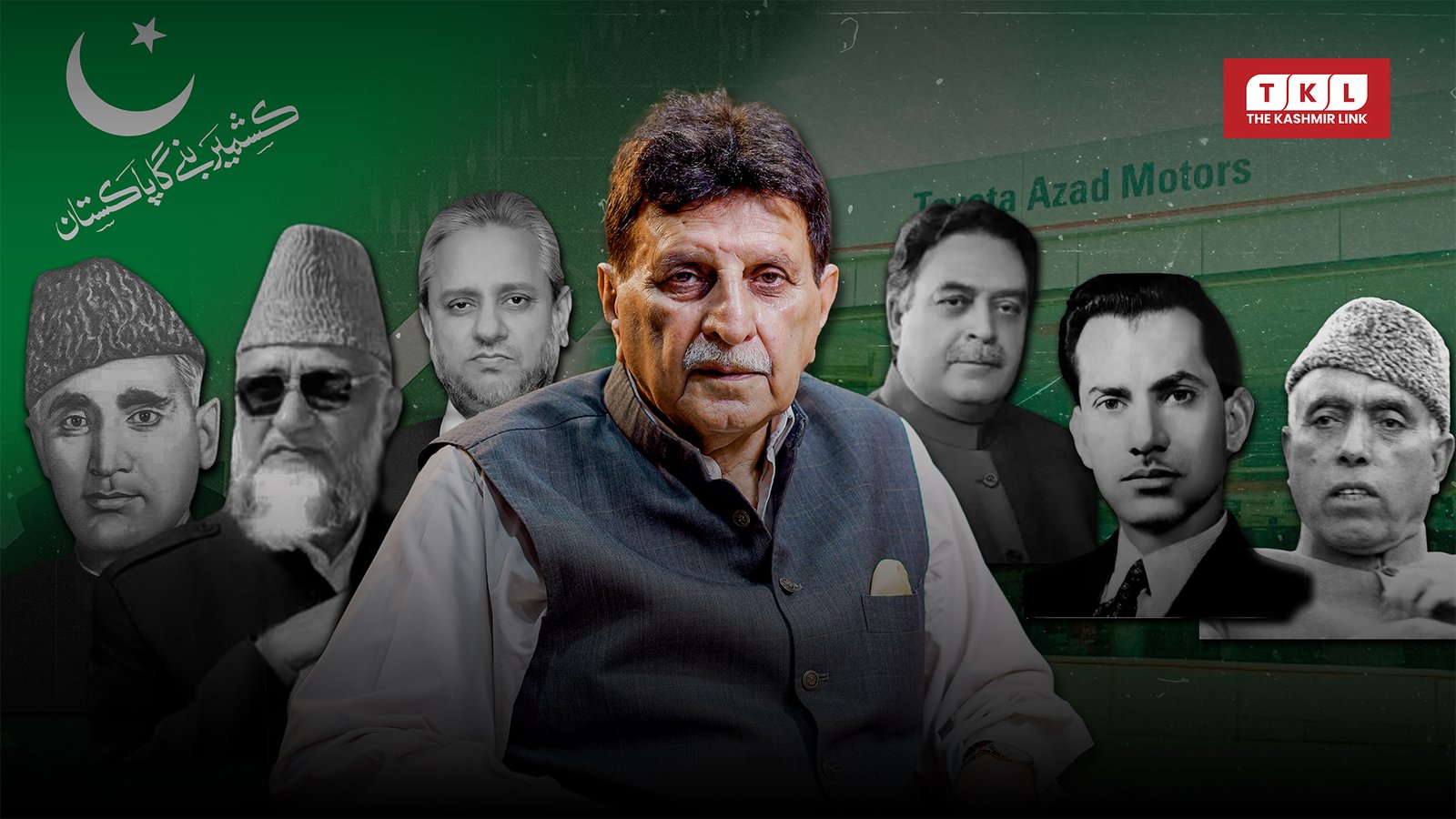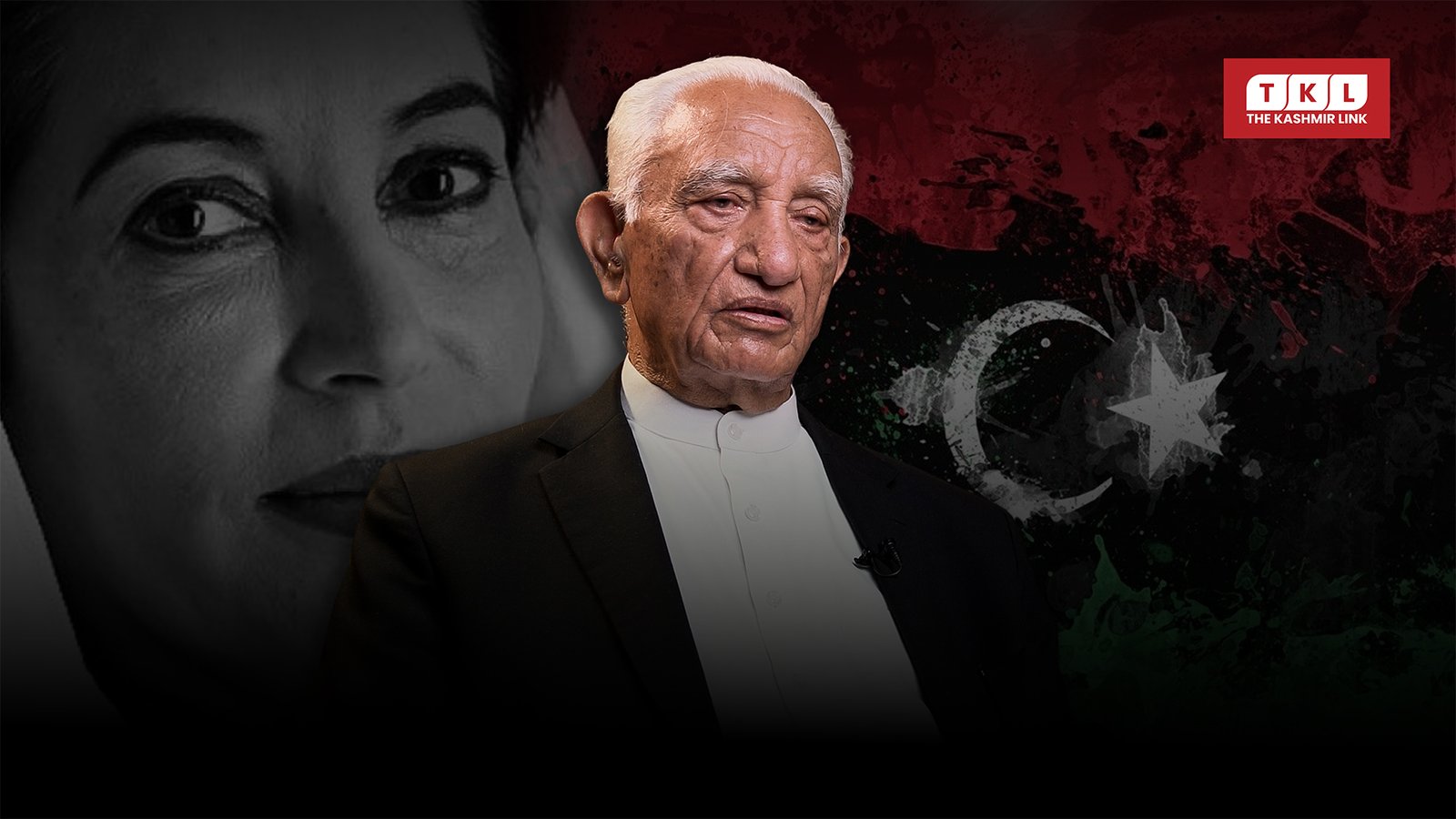Kashmiri Honey: A Story of Hope and Perseverance
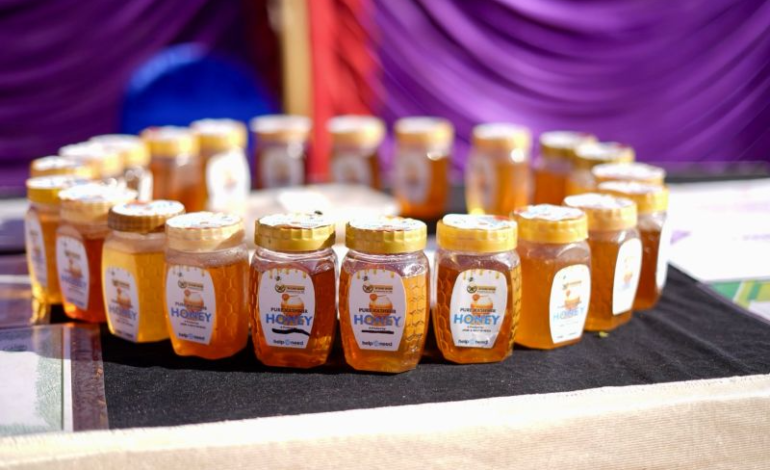
In the heart of Kashmir, there is a small village called Nathgarhaan where a young woman’s dream is buzzing into reality. Faseehatullah Islam, a university student with a mission, is turning a humble family business into a beacon of inspiration for the youth of Pakistan. All while producing high-quality Kashmiri honey that is capturing hearts and markets alike.
Faseehatullah’s world at the age of 13 consisted of textbooks, school uniforms, and the pleasant aroma of the outdoors. However, she had no idea that her path would bring her to the forefront of Kashmir’s emerging honey industry. Faseehatullah smiles softly as she recalls, “I first persuaded my parents to let me try beekeeping when I was in the eighth grade.” “Not knowing what the future would bring, we began with just a few beehives.”The initial struggles were inevitable.
“In the beginning, it was tough. We didn’t have the right equipment, and the bees didn’t always cooperate,” Faseehatullah admits. But the honey production grew through grit, determination, and an unwavering belief in her dream. Over the years, the once modest operation transformed into a thriving business, bringing in millions annually.
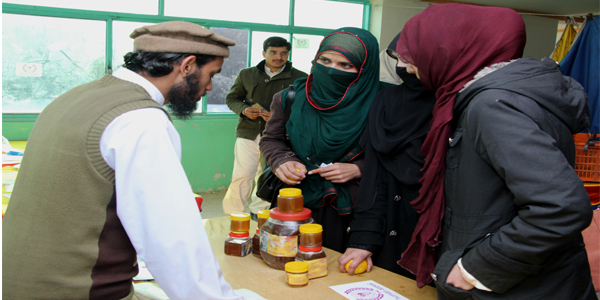
Today, Faseehatullah supports her family with income from the honey business and funds her education at a prestigious university in Islamabad. “I’m grateful for every drop of honey,” she says, her voice steady with pride. “It’s not just a source of income; it’s a source of empowerment.”
But the story doesn’t end with Faseehatullah. Her success has become the spark that has ignited a beekeeping revolution in Nathgarhaan and beyond. While many young people in her village were initially skeptical, they soon realized the potential of this humble business. Dozens of local women are now involved in the honey-making industry. And it has improved their income and fostered a sense of community.
Saira Bibi, a 45-year-old local woman who began beekeeping after hearing Faseehatullah’s story. She says, “I was always inspired by Faseehatullah.” “Her patience gave me hope that I could succeed as well. Now, I’m not just making honey—I’m making my future.”
As the honey business flourished in Nathgarhaan, the recognition of Kashmiri honey began to spread. The region’s honey became synonymous with quality, and demand surged. Enter Help in Need (HIN), a local non-governmental organization that has played a key role in scaling up the industry. Over the past three years, HIN has trained beekeepers, supplied equipment, and supported marketing efforts, helping Kashmiri honey reach markets across Pakistan. “Thanks to HIN’s support, we have elevated our honey production,” Faseehatullah explains. “They’ve helped promote our work, and now visitors from afar are coming to witness our efforts.”
The results of these initiatives were prominently displayed at a recent honey exhibition held in Dhirkot, Azad Kashmir, where local beekeepers presented their honey to a global audience. During this event, Major General Wajid Aziz, the General Officer Commanding (GOC) of the Pakistan Army in Murree, made a special appearance. He expressed admiration for the locals’ hard work and commitment, vowing to provide his complete support. “I’ve never encountered such determination and creativity within a community,” General Aziz remarked during his visit.
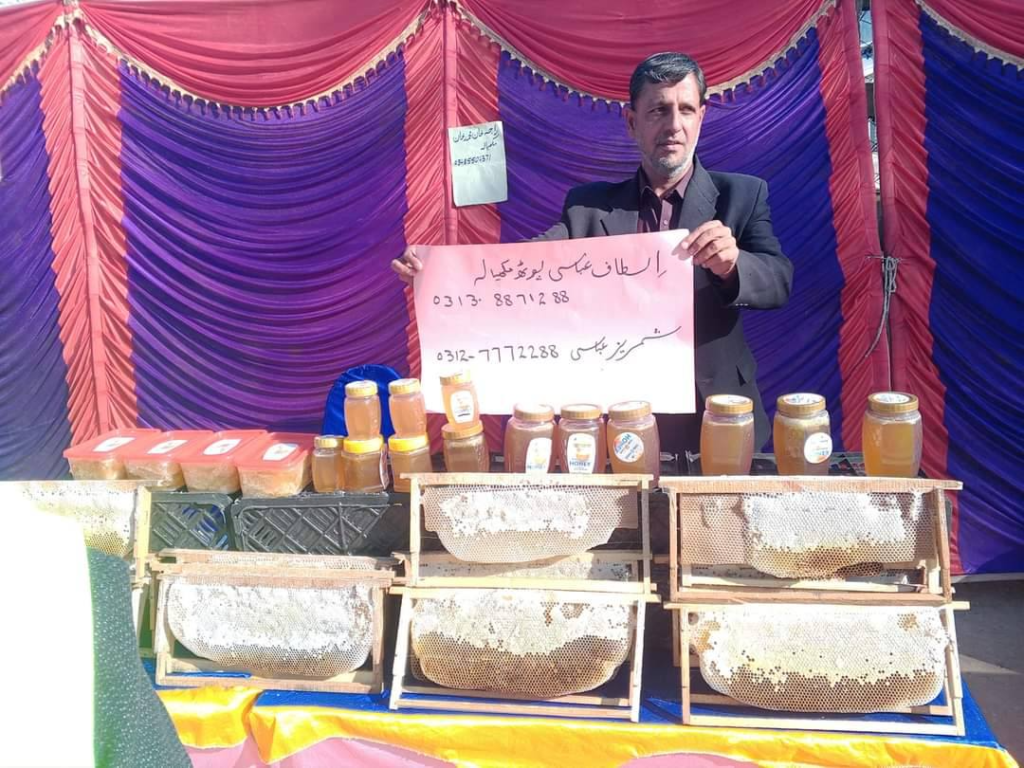
But despite the success, there’s a bittersweet truth to this tale. As the local community thrives, the Azad Kashmir government’s role in this honey revolution remains disappointingly minimal. While local organizations and the army have stepped up to offer support, the government has largely remained on the sidelines. “This is a business that could transform the region,” says Faseehatullah, her voice tinged with frustration. “The government should have played a much bigger role—providing proper training, and infrastructure, and ensuring that our honey reaches international markets. But unfortunately, the gap between the people and the government is vast.”
In the face of these challenges, the people of Nathgarhaan continue to push forward, their hopes as resilient as the bees that produce their honey. With each jar of honey they sell, they are not just creating a product but they are crafting a future.
The people of Kashmir have rivaled the richness of their honey with the richness of their achievements—a triumph driven by a young girl with aspirations, a community that supported her, and the relentless efforts of those who keep it thriving. Despite the government’s shortcomings, the people of Kashmir have proven that, with or without assistance, they can bring their dreams to life.
And in the world of honey, that is the sweetest success of all.


